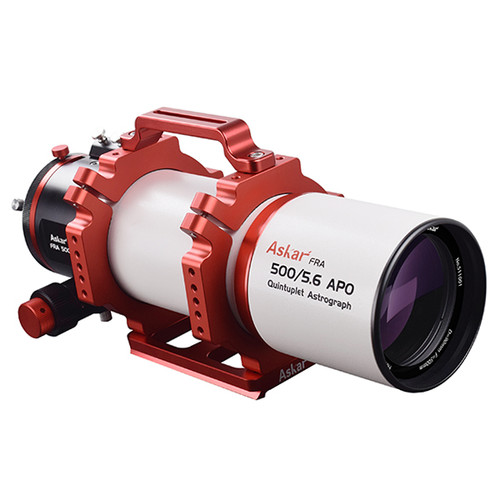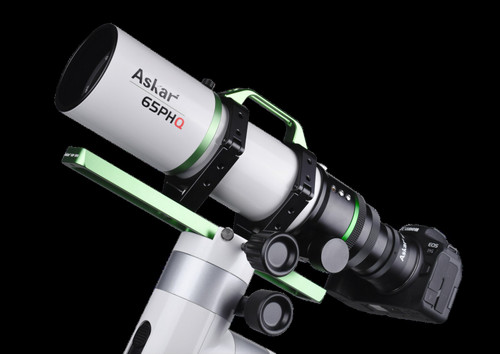Product Overview
Askar SQA55 55mm f/4.8 Petzval Astrograph
The new Askar SQA55mm f/4.8 telescope is a Quintuplet air-spaced SD glass Petzval astrograph, suitable for astrophotography and daytime photography.
This telescope comprises a quintuplet optical system that includes one SD glass element and one ED glass element, which provides a very flat field and a high degree of colour correction.
The on-axis star PSF is 2.5um and in the corners 4um
The Petzval lens structure ensures that there is no need to calculate a specific back focus distance. Placing the camera sensor at a distance of 50mm to 60mm from the rear M48 connection thread will ensure full format performance.
Lens Hood and Reversible Design
The lens hood is fixed by a slot. When not in use, it can be stored on the lens barrel in reverse to reduce its overall volume, and when used, it only needs to be fixed to the lens.

Filter Thread
The end of the OTA is equipped with an M48 connection thread with a built-in 2" filter thread.
Quick Release Base Position
On the rear of the lens tube, there are four multifunctional quick-release bases, which can be used to connect various accessories for photography and astrophotography and can also be perfectly matched to other accessories within the SQA Series.
Variable Aperture Lens
The SQA55 has an aperture range of f/22 to f/4.8 with a graded adjustment ring and a scale labelled on the lens tube to prevent accidental touching and preserve the adjustment parameters.
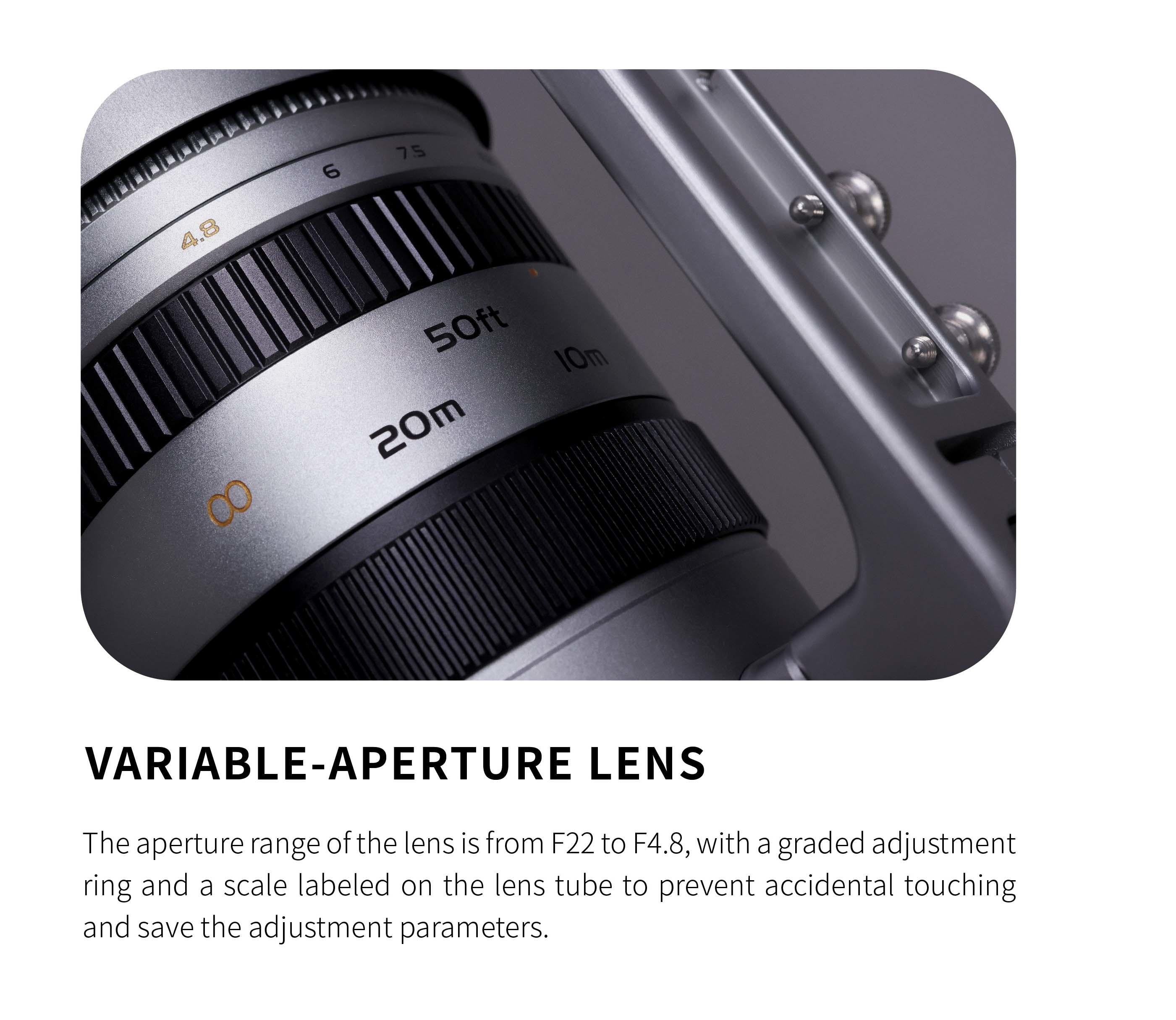
Camera Quick Release Base
Camera Quick Release Knobs on the top handle and the bottom bracket, which can be used to convert the OTA to Camera Lens mode manually and quickly without additional tools.
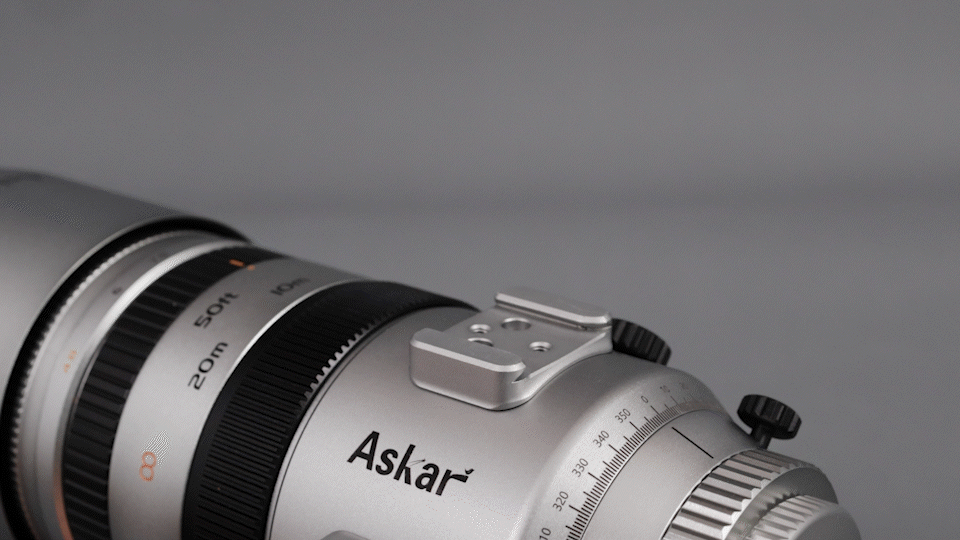
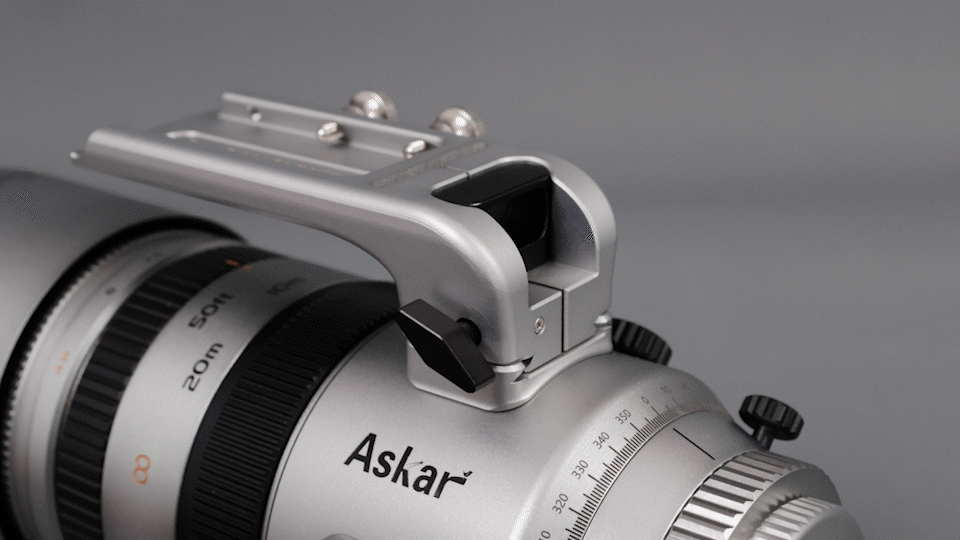
Mounting Bracket
The bottom mounting bracket has 1/4" and 3/8" threads for tripod mounting the OTA.
Dovetail Plate
A Vixen-style 200mm Dovetail plate is included. The bottom of the dovetail plate is designed with hand screws and a quick-release knob, which can be assembled and disassembled without additional tools.
Handle
The handle has a finder base slot that can connect different accessories. It is a quick-release design and can be removed without additional tools.
M67 Filter Thread
The front of the lens is designed with an M57 Filter Thread, which can be connected to camera filters for daytime photography.
Diversified Photography Applications
The optical and mechanical design is optimised for both astrophotography and daytime photography.
Dual Speed Focuser Design
Fine and Coarse focus controls can be adjusted independently. Fine adjustment includes a central indicator point plus a focus travel of +/- 1mm and a locking screw.
The coarse adjustment is engraved with a reference scale for focussing distance in imperial and metric markings. In daytime photography, focussing can be adjusted in accordance with the focussing scale.
The coarse adjustment hand wheel is equipped with MXL MXL-type timing Teeth, which can be used with a timing belt to mount an electronic focuser.
For Astrophotography, the coarse adjustment can be rotated to the infinity mark for focussing, and there is still a certain amount of leeway after that.
Thanks to the Flat-Field optical design, with the back focus distance set between 50mm and 60mm, the OTA need only be focussed.
Coarse adjustment is also designed with a locking screw.
Dual Rotator Design
The lens tube and 360-degree rotator both have independent locking screws. For Daytime photography, the whole body can be rotated.
For Astrophotography, the high-precision rotator can be rotated independently, and it is engraved with a scale for adjusting and saving the angle.
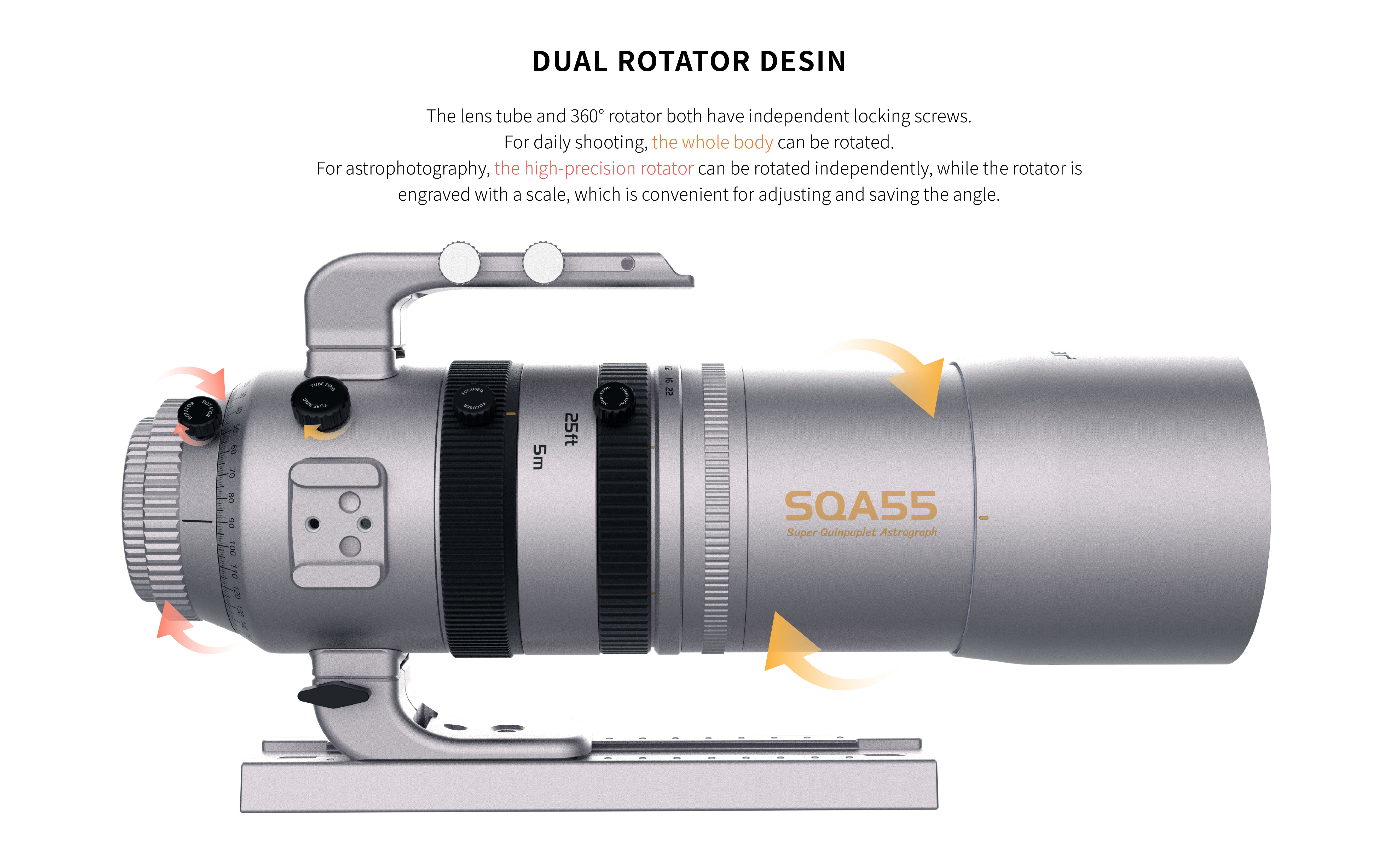
Optical Path
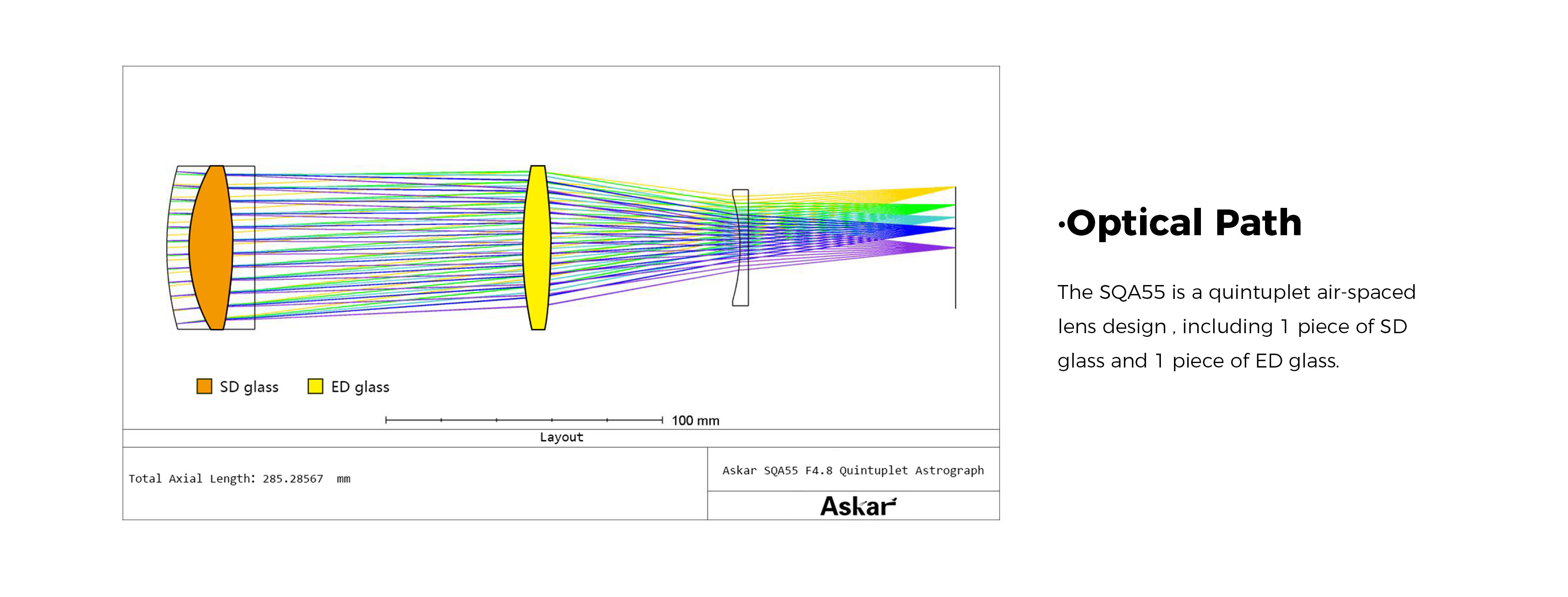
MTF Chart
The modular transfer function (MTF) is a quantitive description of the clarity of the image (including contrast and resolution) of an optical lens.
The vertical axis is the MTF value, and the horizontal axis is the distance from the centre of the frame to the edge.
In the two sets of curves corresponding to high and low frequencies, even at the field edge of a full frame, the sagittal lines and sagittal lines distance of the SQA55 lens remain very small. The low frequency of 10lp/mm is higher than 0.9 overall, showing the SQA55 lens high resolution and sharpness.
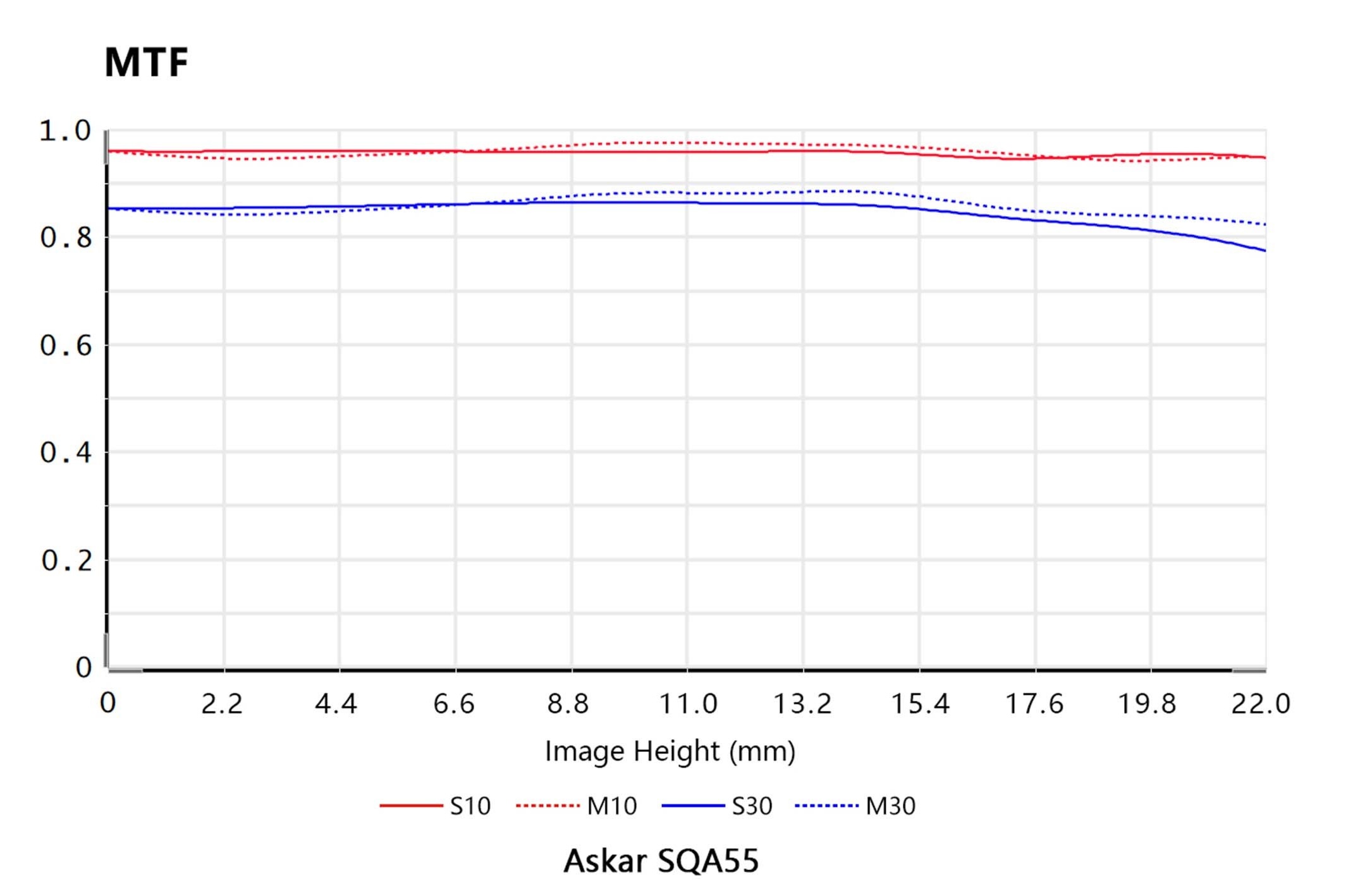
Relative Illumination
Relative Illumination (RI) represents the combined effect of light loss and attenuation at the corners of the lens, and the RI curve illustrates the change in illumination across the sensor's imaging range.
Illumination variations can adversely affect the image. The vertical axis shows different percentages of example illumination intensities, and the horizontal axis shows the difference between the centre of the frame and the edge.
The SQA55 guarantees 90% illumination even at the edge of a full frame, minimising vignetting.
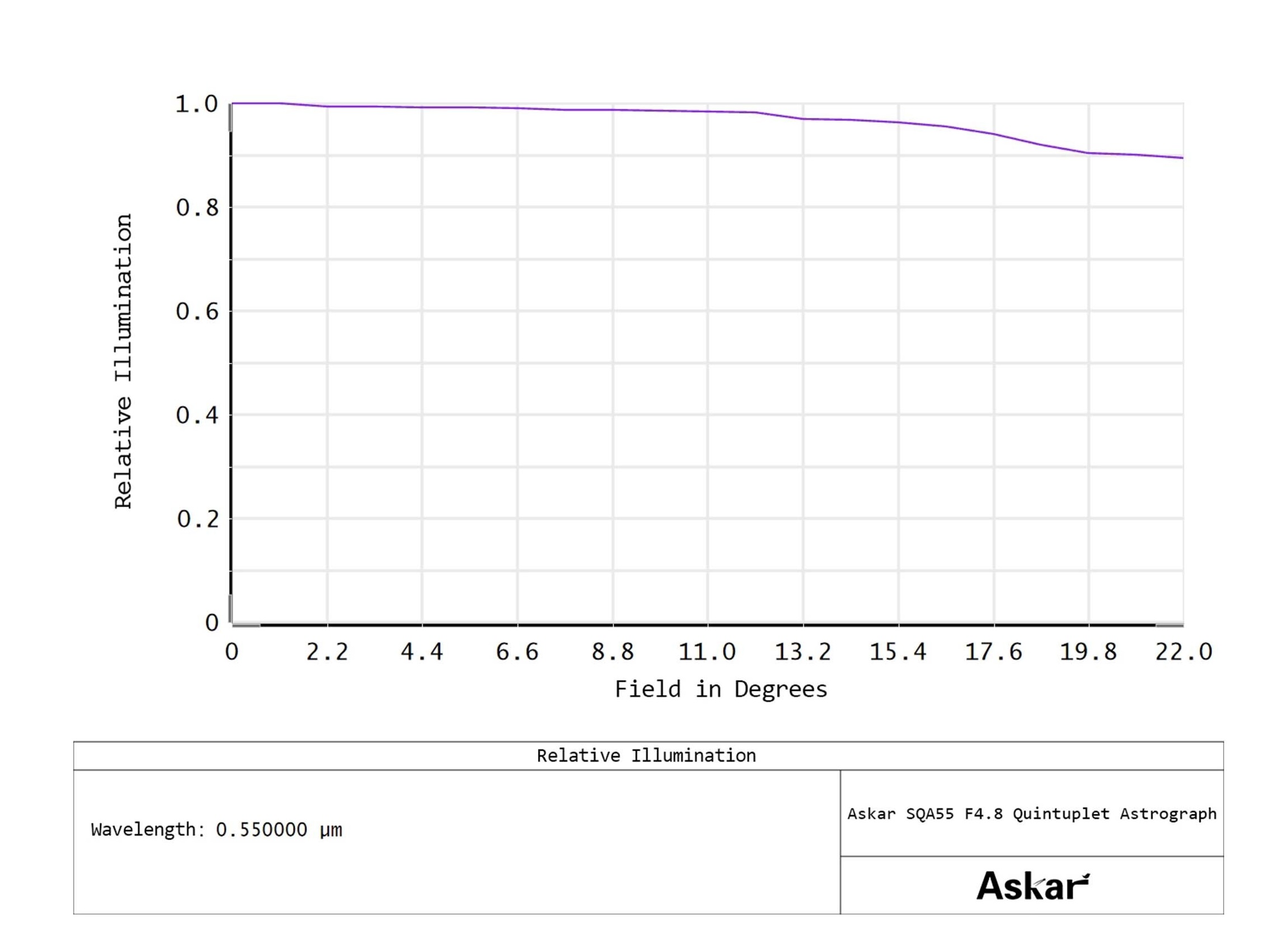
Spot Diagram
The imaging quality of the optical system can be evaluated by analysing the distribution of the spots on the spot diagram.
The SQA55 has a central star spot of less than 2.5um, and the star point at the field edge is less than 4um, showing a fine star point.
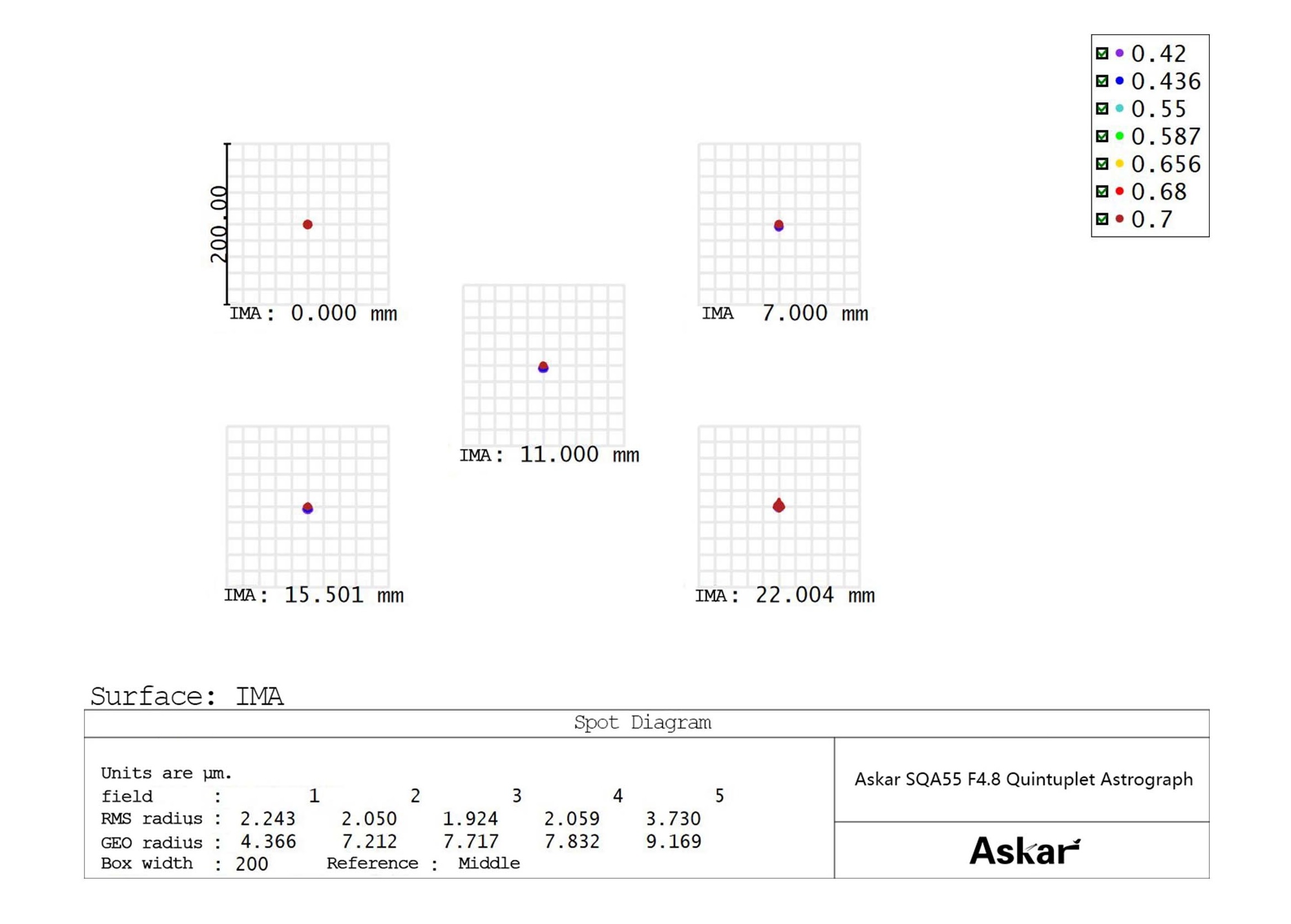
Zygo Objective Chart
The Zygo interferometer is internationally recognised as an authoritative instrument for measuring lens quality, and the SQA55 test results show very good star quality.
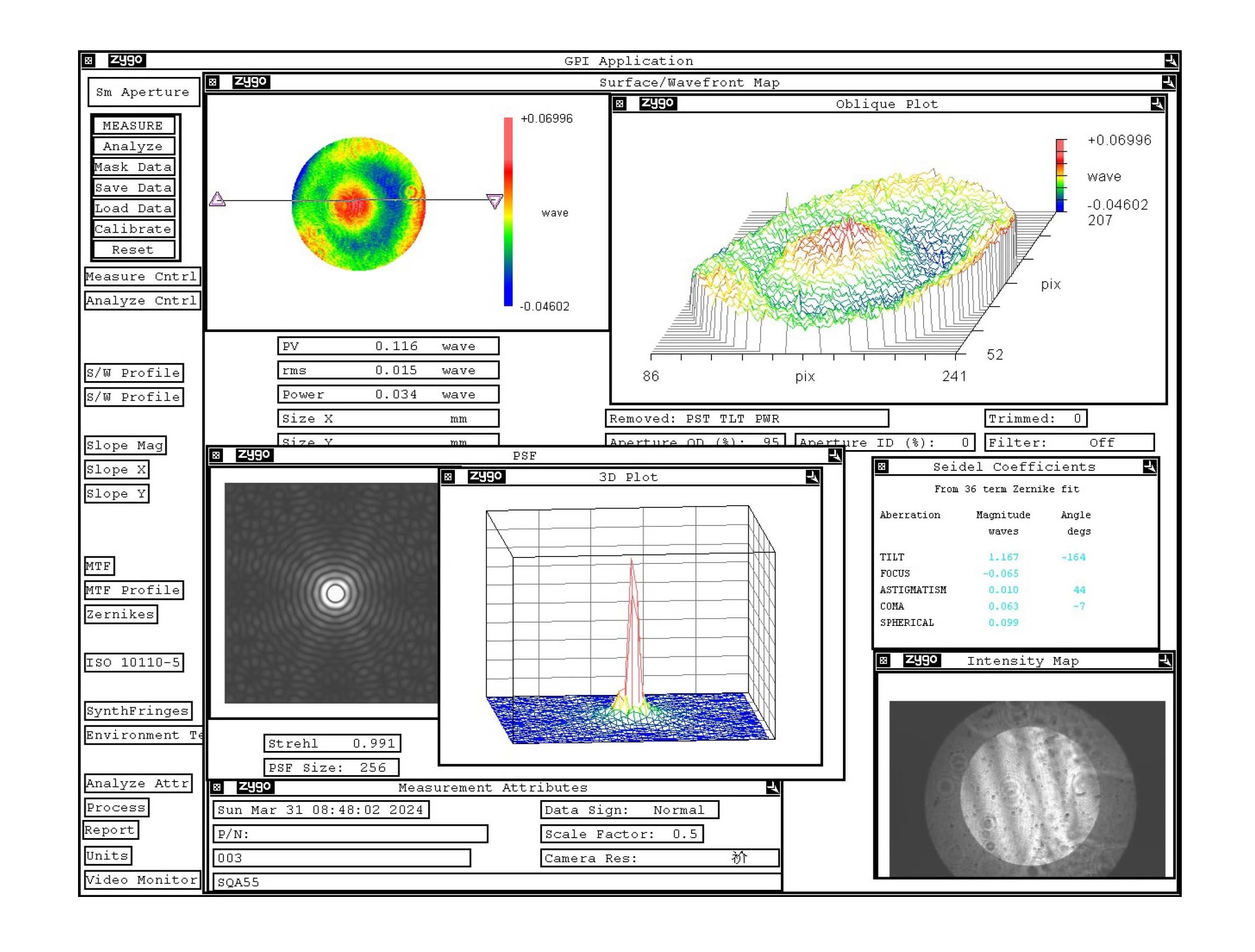
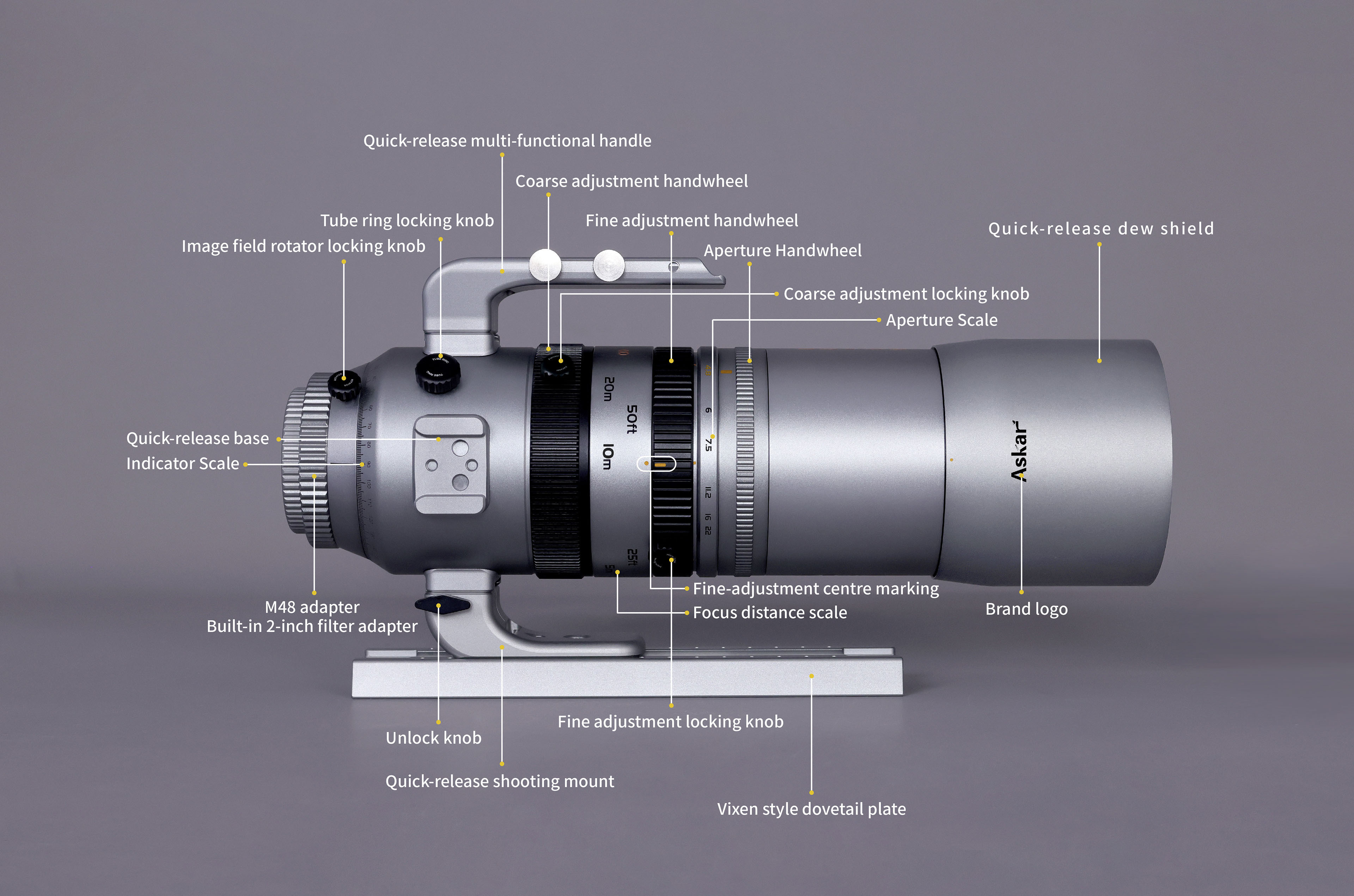
Product Size Diagram
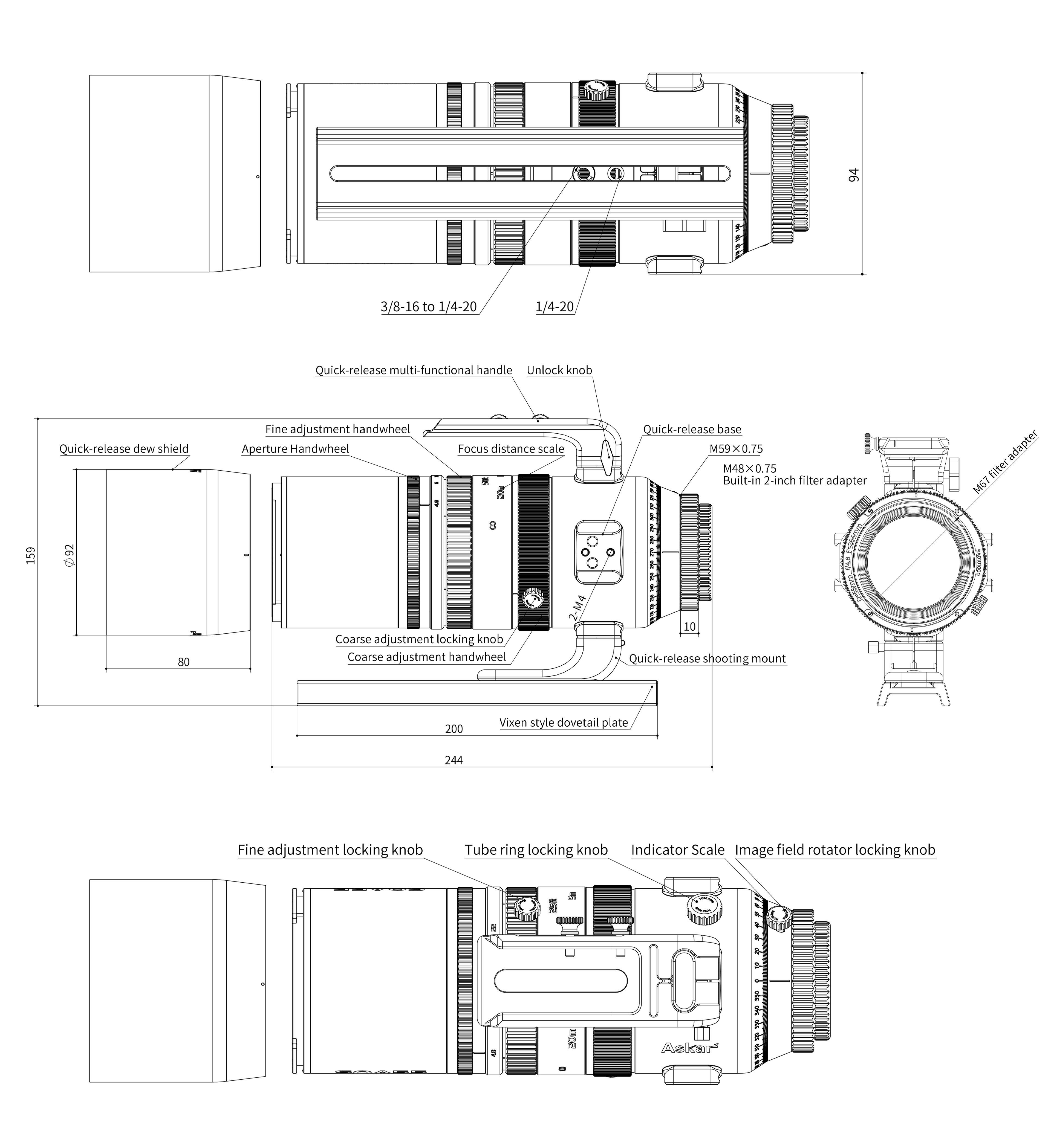
Specifications
|
SQA55 Parameters |
||
|
Aperture size |
55mm |
|
|
Focal length |
264mm |
|
|
Focal ratio |
f/4.8 |
|
|
Objective lens |
Quintuplet petzval APO(One piece of SD glass, one piece of ED glass) |
|
|
Format specifications |
44mm |
|
|
Aperture blades |
14 pieces |
|
|
Graded Aperture |
f/4.8-f/22 |
|
|
Closest Focus Distance |
5m |
|
|
Focusing mode |
Manual focus |
|
|
Filter Diameter |
M67 |
|
|
Total length |
316mm (inclulding dew shield); 244mm (without dew shield) |
|
|
OTA weight |
1.84kg |
|
|
Total weight (including handle & dovetail plate) |
2.18kg |
|
|
Rear-end adapter |
M48*0.75 (with M48×0.75 filter thread) |
|
|
Rear-end connection distance |
Support 50-60mm range (Recommended connection length is 55mm) |
|
|
Standard package items |
a SQA55 OTA, a military-grade waterproof hand-carrying case |
|







